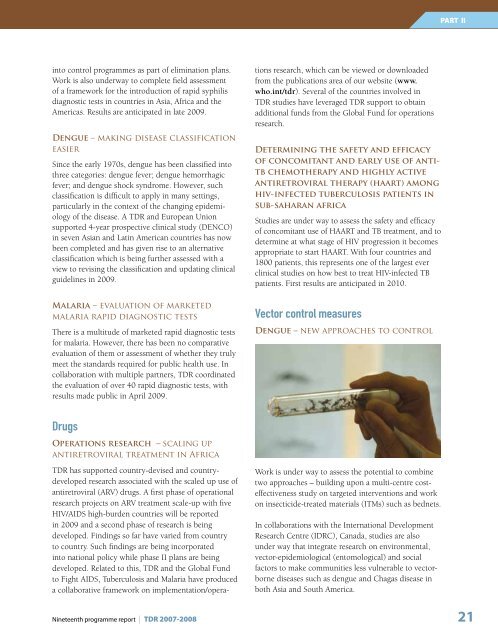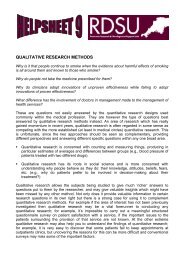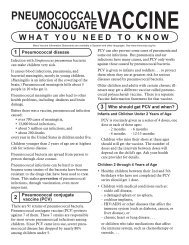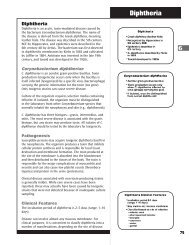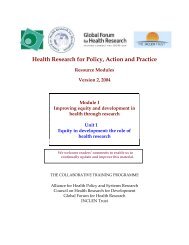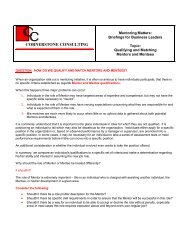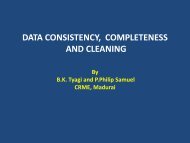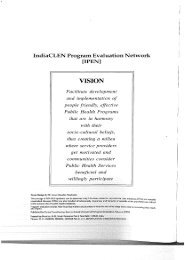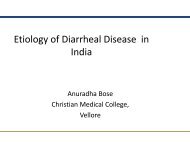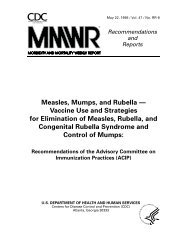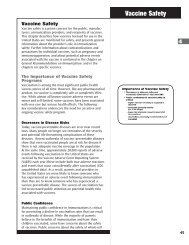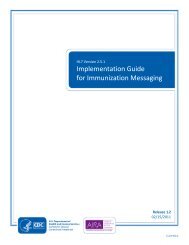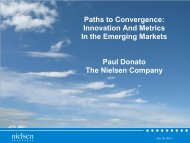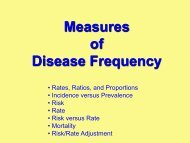documentation - The INCLEN Trust
documentation - The INCLEN Trust
documentation - The INCLEN Trust
- No tags were found...
Create successful ePaper yourself
Turn your PDF publications into a flip-book with our unique Google optimized e-Paper software.
PART IIinto control programmes as part of elimination plans.Work is also underway to complete field assessmentof a framework for the introduction of rapid syphilisdiagnostic tests in countries in Asia, Africa and theAmericas. Results are anticipated in late 2009.Dengue – making disease classificationeasierSince the early 1970s, dengue has been classified intothree categories: dengue fever; dengue hemorrhagicfever; and dengue shock syndrome. However, suchclassification is difficult to apply in many settings,particularly in the context of the changing epidemiologyof the disease. A TDR and European Unionsupported 4-year prospective clinical study (DENCO)in seven Asian and Latin American countries has nowbeen completed and has given rise to an alternativeclassification which is being further assessed with aview to revising the classification and updating clinicalguidelines in 2009.Malaria – evaluation of marketedmalaria rapid diagnostic tests<strong>The</strong>re is a multitude of marketed rapid diagnostic testsfor malaria. However, there has been no comparativeevaluation of them or assessment of whether they trulymeet the standards required for public health use. Incollaboration with multiple partners, TDR coordinatedthe evaluation of over 40 rapid diagnostic tests, withresults made public in April 2009.TDR has supported country-devised and countrydevelopedresearch associated with the scaled up use ofantiretroviral (ARV) drugs. A first phase of operationalresearch projects on ARV treatment scale-up with fiveHIV/AIDS high-burden countries will be reportedin 2009 and a second phase of research is beingdeveloped. Findings so far have varied from countryto country. Such findings are being incorporatedinto national policy while phase II plans are beingdeveloped. Related to this, TDR and the Global Fundto Fight AIDS, Tuberculosis and Malaria have produceda collaborative framework on implementation/operationsresearch, which can be viewed or downloadedfrom the publications area of our website (www.who.int/tdr). Several of the countries involved inTDR studies have leveraged TDR support to obtainadditional funds from the Global Fund for operationsresearch.Determining the safety and efficacyof concomitant and early use of antitbchemotherapy and highly activeantiretroviral therapy (haart) amonghiv-infected tuberculosis patients insub-saharan africaStudies are under way to assess the safety and efficacyof concomitant use of HAART and TB treatment, and todetermine at what stage of HIV progression it becomesappropriate to start HAART. With four countries and1800 patients, this represents one of the largest everclinical studies on how best to treat HIV-infected TBpatients. First results are anticipated in 2010.Vector control measuresDengue – new approaches to controlDrugsOperations research – scaling upantiretroviral treatment in AfricaWork is under way to assess the potential to combinetwo approaches – building upon a multi-centre costeffectivenessstudy on targeted interventions and workon insecticide-treated materials (ITMs) such as bednets.In collaborations with the International DevelopmentResearch Centre (IDRC), Canada, studies are alsounder way that integrate research on environmental,vector-epidemiological (entomological) and socialfactors to make communities less vulnerable to vectorbornediseases such as dengue and Chagas disease inboth Asia and South America.Nineteenth programme report | TDR 2007-200821


